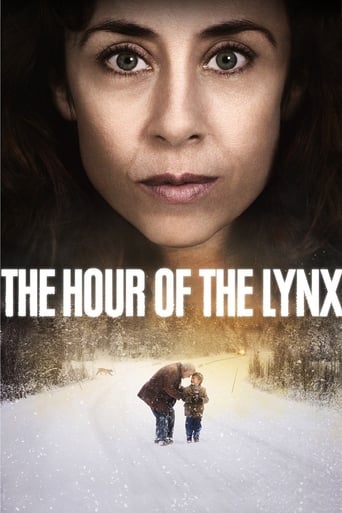Kirpianuscus
more than a film, it is a trip. in yourself. around demons and fears and escapes. in the middle of moments and memories. for discover the truth. it is an impeccable film at each level. and the basic motif for see it is the impressive performances. the profound story , who reminds the roots of a tree. it could be defined as psychological drama. in fact, it is more a spiritual film, spiritual being more than religious. because it gives an entire universe of expectations and mysteries and an impressive revelation. because it has the force for transform you in one of its characters.
Bene Cumb
The film has a gripping start, possessing great possibilities for the development of a good thriller with twists and flashbacks, but, in its stead, we see an over-sophistication of drama with mental issues, loose ends and weakly or trivially substantiated motives. The source mood is nice, major performances are promising, but overall accomplishment did not meet my expectations. When the credits appeared, I just shrugged my shoulders and thought that The Killing type of suspense and unknowing is much more fascinating. Events in someone's mind should be handled in a more versatile manner, it is rather easy to get stuck into uniformity and attempts to create horror.So, 8 points for performances, 4 for the script. The film is no flop, but do not expect persistent thrill and/or witty twists.
rooee
Snow-swept Scandinavian bleakness. A terrible and mysterious murder. The steely face of Sofie Gråbøl. But The Killing this ain't. It's actually a very pedestrian psychological drama which strains credibility, and threatens to test the patience even at 90 minutes.Gråbøl plays Helen, pleasingly introduced as a foul-mouthed priest. But then she's approached by a young psychologist named Lisbeth (Signe Egholm Olsen) who is conducting research on patients at a local psychiatric facility, and a potentially interesting character, embodying potentially interesting themes, is locked away for the rest of the movie. Lisbeth's research seems to involve giving small animals to violent inmates and then watching what happens on a monitor. Lisbeth asks Helen for help in getting through to Drengen (Frederick Christian Johansen) because he has started talking about God. Helen builds a rapport with the boy, and uncovers the truth about his troubled childhood and the defining relationship he enjoyed with his grandfather.The problems with The Hour of the Lynx are mostly of the "Really?" variety. It's not just the idea of a psychologist hiring the nearest priest simply because her patient mentions the Almighty, nor the fundamental implausibility of Lisbeth's pet project. It's everything else, too. Why is Helen allowed to be alone in a cell with an unrestrained killer, who the authorities insist will murder without reason? Why don't Helen and Lisbeth discuss some kind of strategy for dealing with Drengen before bumbling in and arguing in front of him? How have the filmmakers managed to bungle what should be a pretty straightforward story with a flashbacking narrative that hops about so spasmodically? The two main performances, from Gråbøl and Johansen, are skillful and heartfelt. Søren Malling is solid, if stolid, as chief guard Knud. But then there's Olsen. She plays Lisbeth like a rabbit in headlights. It's partly the writing and partly the performance. Wearing a permanently startled expression, Lisbeth is a nervous presence, apparently unable to manage the dynamic between herself and her patients. Perhaps that's the point. Perhaps it's a statement on the hands-off, medication-focused state of modern psychiatry. But this isn't made clear, and the character simply comes off as hopelessly incompetent and unprofessional.Aesthetically, the film has the look of TV, which may be appropriate for the bickering soap opera interplay between Helen and Lisbeth, but it's lethally uncinematic. The stock wilderness looks pretty but it plays no part in building character or atmosphere (other than reflecting the viewer's indifference). More evocative is Tobias Hylander's deep ambient score, subtly effective even when the drama is being unsubtly ineffective.The film isn't a complete write-off. Once Drengen starts to open up, and we learn of his relationship with his grandfather, it's like we're watching a different movie. Fifteen minutes of moving, strange, compelling, credible human drama. This sequence made me more appreciative of the film's search for empathy, however flawed, as well as its laudable attempts at the debunking of madness-as-a-sickness. But it's too little too late for a silly film based on a lazy premise.
Armand
it is a film about yourself. if you have patience and the gift of search far to skin of things, it can be useful. because the theme is the conquest of happiness. a delicate, touching message who reminds basic facts. a film like a time travel. because, it is not a case adaptation, a blockbuster or a pink entertainment but , maybe, image of a honest question. a fragile discover of roots. sure, it is not exactly the expected film for many. but its images are beautiful, the performance - precise, the spirit of play - more than in an ordinary adaptation. more important is the emotion after its end. because, it is one of films who gives and explores yourself to you. a film who reminds small things. bitter taste. splendid landscapes. and a lot of feelings. that can be all !



